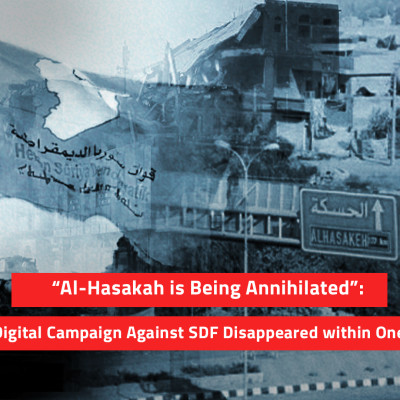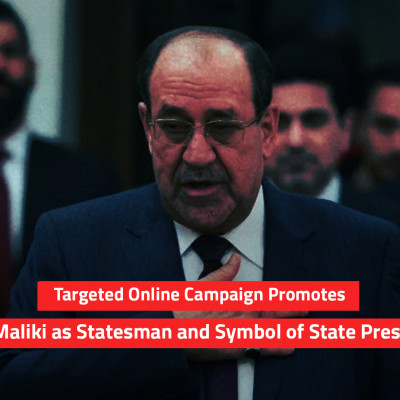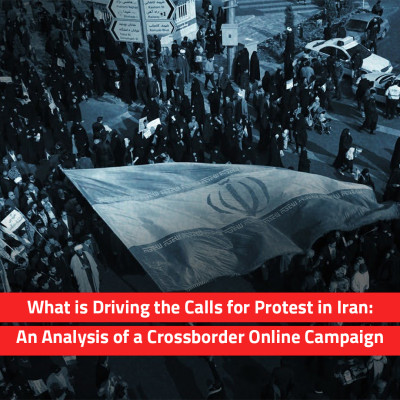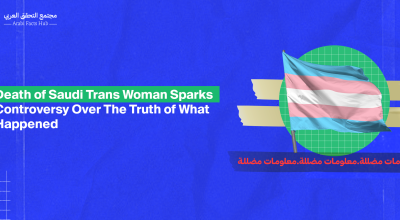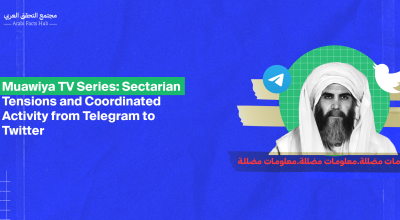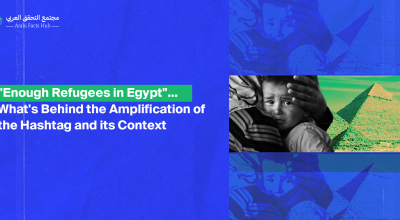Lebanese Nun Maya Ziyadeh’s Call to Prayer for the South Sparks Wave of Incitement and Another of Solidarity
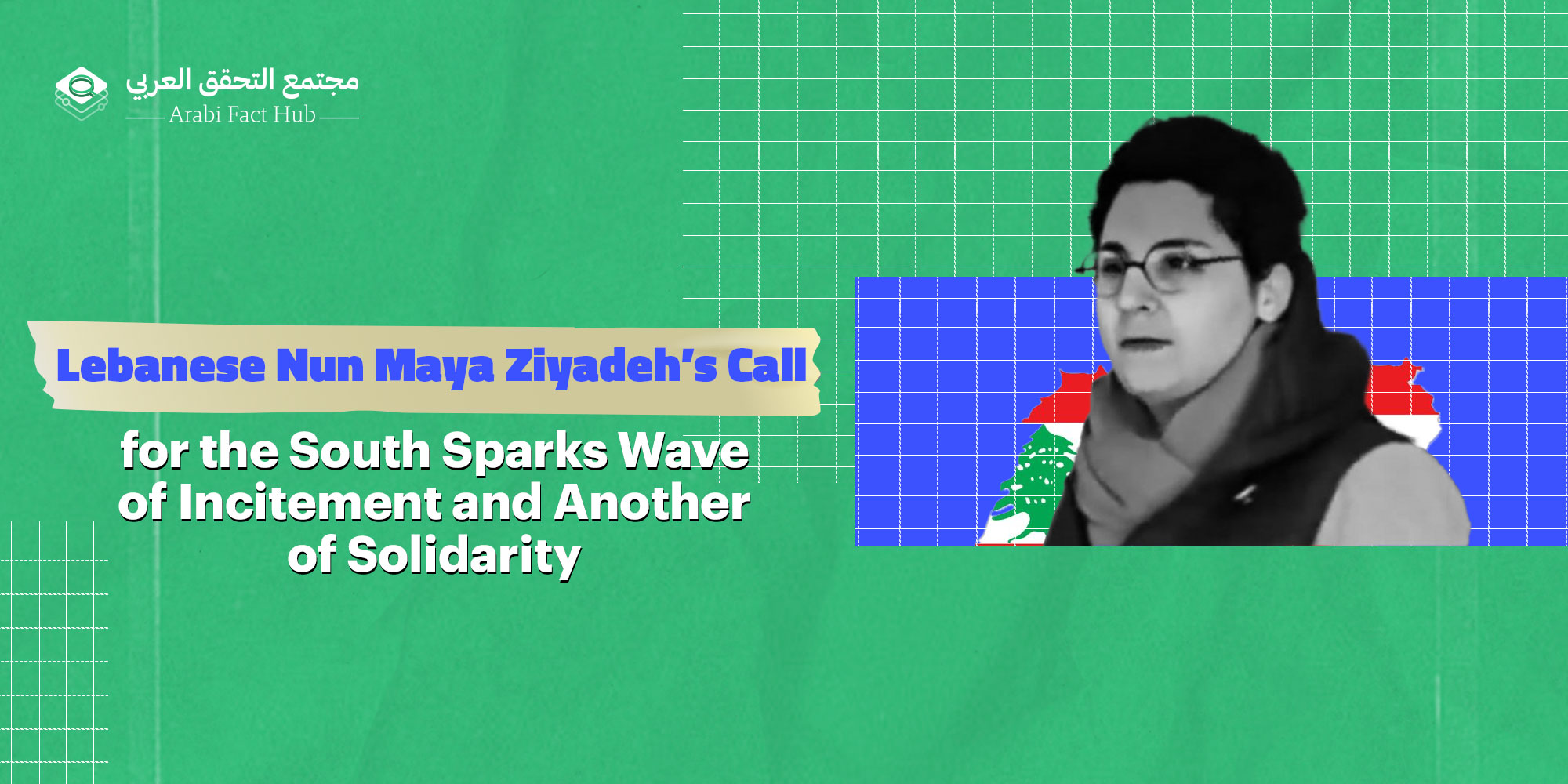
A call to prayer by Sister Maya Ziyadeh in support of Hezbollah fighters in the South during the Israel-Hezbollah confrontation sparked controversy on social media. This led to a flurry of online interactions, with some criticizing the nun and others expressing solidarity with her. Some of these posts were from fake accounts.
Lebanese nun Maya Ziyadeh called upon students of a predominantly Christian school in Mount Lebanon, "Al Habl Bila Danas" (The Unsullied Rope), to pray "for the South and its children, for the families and mothers of the South, and for the resistance fighters," as seen in a video circulating on social media on March 10th. The reactions reflected the country's political and sectarian divide, with the video sparking a campaign of criticism against Maya Ziyadeh. However, it also prompted a widespread solidarity campaign, albeit accompanied by posts from fake accounts.
Incitement against the nun
There were no specific hashtags directed against Maya Ziyadeh on X. However, the sister found herself the target of criticism unleashed by accounts supportive of Christian political forces, particularly the Lebanese Forces and the Kataeb Party, as tweets carried an inflammatory discourse against Ziyadeh.
The accounts summoned recorded scenes of armed clashes that occurred in recent years between Hezbollah supporters and the Shia Amal movement on one side, and other armed groups in the Ain El Remmaneh area, a stronghold of the Lebanese Forces Party. Accompanying the posted images were provocative and hostile comments describing Maya Ziyadeh as a "misleading and misled nun", "infidel", "deviant", "ignorant", "church puppet", and a "demon". Posts also criticized her call to pray for "terrorists".
Other accounts mocked her, saying: "Do you still want to pray when Ain El Remmaneh is invaded by Shi’ites?", while some criticized her reading of Mahmoud Darwish's poem "Passport".
Content on these accounts reveals their involvement in organized campaigns against Hezbollah, calling for an end to its influence. Their activity stood out in several coordinated hashtags, which have resurfaced in the virtual space recently, such as: #Master_of_Fake_Victories, #Hezbollah_Terrorist_Party, #Lebanon_Does_Not_Want_War, #Expel_Hezbollah_and_Iran, #Hezbollah_Is_Lebanon's_Cancer.
.jpg)
.jpg)
.jpg)
.jpg)
.jpg)
The accounts also promoted unreliable information claiming that the school administration had decided to permanently ban Ziyadeh from teaching and transferred her from Al Ghabalah School to another location. That claim was refuted by the school administration which said in a statement that "Ziyadeh is not part of the educational staff at the school".
Coordinated solidarity with the nun
As attacks against the nun intensified, the hashtag #StandWithMayaZiyadeh emerged, supported by Hezbollah sympathizers and others. The hashtag garnered over 8,000 tweets on X and was viewed 533,000 times, potentially reaching an additional 4 million views. Since its inception on March 11th, the hashtag has witnessed 8,756 interactions, according to statistics from Meltwater, a leading social media content analysis tool.

Timing and type of interactions on the hashtag #StandWithMayaZiyadeh - Meltwater
The hashtag emerged following a call on the "Simia - Resistance Media Forum" channel on Telegram, urging users to post using the hashtag on social media platforms. Our monitoring of this channel's content shows it is affiliated with Hezbollah's online activities and usually marks the beginning of campaigns expressing the party's positions and directions, including smear and recruitment campaigns.
The forum operates various accounts on social networks, which become active simultaneously upon the launch of campaigns. For instance, the time gap between the call to a campaign on Telegram and X was just one minute.
Several accounts copied the content of the call to post about Maya Ziyadeh, including screenshots bearing the logo of the Resistance Media Forum (Simia), and reposted them on X.
The "Nasim Center for Resistance Media in the Bekaa Region" mobilized for the solidarity campaign with Maya Ziyadeh. "Nasim" launched its campaign on Telegram, using the same content from "Simia".
Fake accounts consistently disseminated uniform content, followed by the hashtag "Nasim Center". Activity indicators of these accounts suggest they are automated, given the similarity of the published content, low number of followers, high posting frequency, and engagement in regional issues linked to Hezbollah and Iran.
The "Nasim Center" account on X enjoys a following from many figures closely associated with Hezbollah, such as Jawad Nasrallah, the son of the party's Secretary-General, and Hussein Mortada, the director of the Sonar Media Center, who also participated in the coordinated campaign.
Additionally, photo-shopped posts emerged depicting the leader of the Lebanese Forces, Samir Geagea, in the attire of ISIS members. The caption on the image read "The New ISIS", alongside the Lebanese Forces Party logo.
Fake accounts participated in this wave to amplify its attack on Geagea and his supporters, who were attacking Maya Ziyadeh. These accounts feature promotional posts for Hezbollah, some without images, while others are limited to reposting content.
The hashtag #StandWithMayaZiyadeh showed other indicators of manipulation in X policies by engaging in inauthentic activities. For instance, there was a significant increase in the retweet/repost rate of hashtag content, accounting for 68.5% of all posts containing the hashtag, equivalent to 6,000 posts, compared to only 585 genuine posts. Another notable discrepancy was the presence of 6,000 posts out of 8,000 originating from accounts with undisclosed locations, indicating coordinated non-organic activity. Lebanon topped the list of countries where location-disclosed posts originated, with only 1,400 posts, followed by the United States, Iraq, Syria, Germany, and Yemen, according to Meltwater.




















